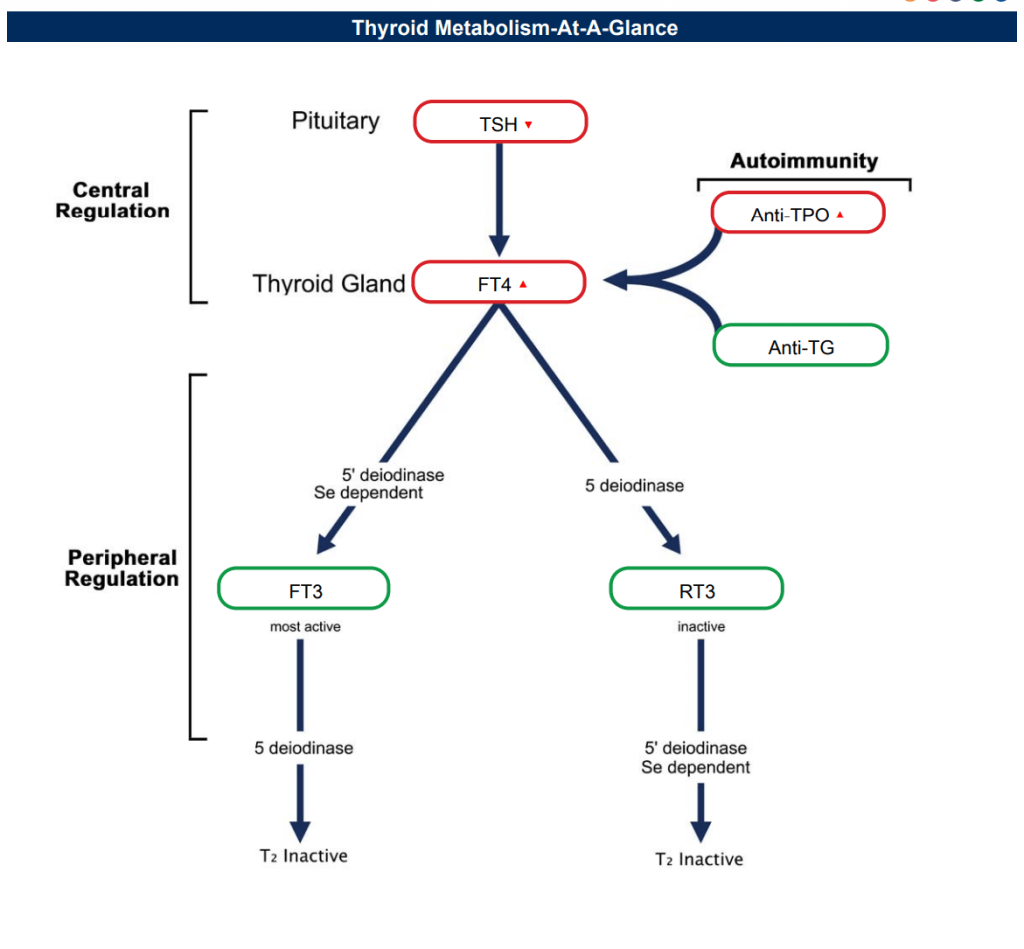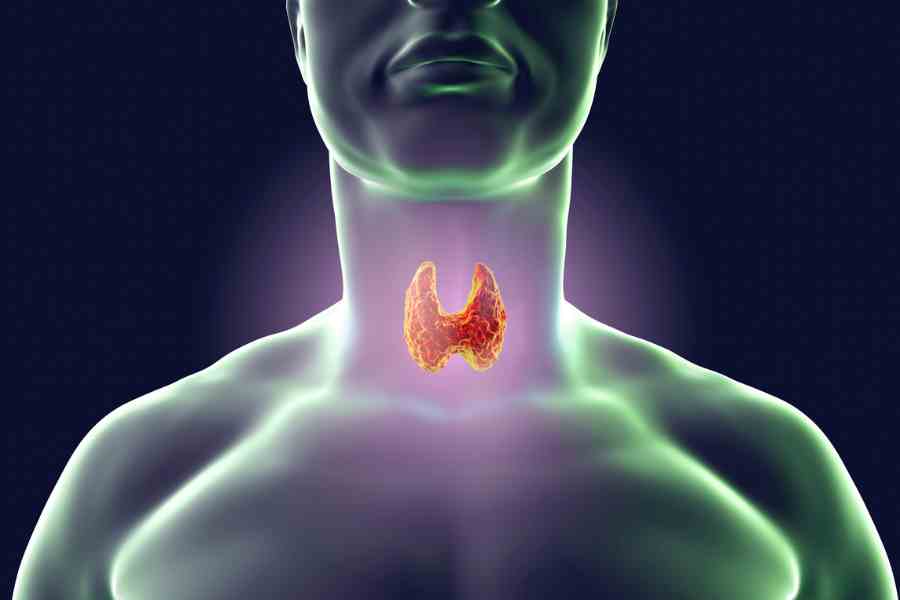If you have an underactive thyroid (hypothyroidism), you may have been prescribed a thyroid hormone replacement medication like levothyroxine (Synthroid). However, some patients find that even when taking thyroid medication, their symptoms of fatigue, weight gain, hair loss and more don’t improve. There are a few reasons why this can happen.

The Inactive T4 Versus Active T3 Hormone
The most commonly prescribed thyroid drug contains T4 (thyroxine), which is an inactive form of the thyroid hormone. Your body is supposed to convert T4 into its active form, T3 (triiodothyronine) on demand, to properly regulate metabolism. In healthy people, the ratio of T4 to T3 is usually between 3:1 and 4:1. However, in hypothyroid patients, this ratio can be as high as 50:1, indicating impaired T4 to T3 conversion.
If for some reason, your body has trouble converting T4 to T3 adequately, taking a T4 thyroid medication may not provide sufficient levels of the active T3 form that your tissues and cells actually need. Factors like chronic stress, inflammation, liver issues, gut problems and nutrient deficiencies can all hinder this critical T4 to T3 conversion process. Without proper conversion, hypothyroid symptoms may persist despite T4 medication.
Hashimoto’s Disease and Autoimmunity
Many cases of hypothyroidism are caused by Hashimoto’s disease, an autoimmune disorder. With Hashimoto’s, your immune system attacks and damages the thyroid gland, leading to inadequate hormone production over time.
If autoimmunity against thyroid tissue is not properly addressed, taking supplemental thyroid hormone may still not resolve symptoms. The autoimmune attack can progressively damage thyroid function further. Getting to the root cause of what triggered thyroid autoimmunity in the first place is key.
Nutritional Deficiencies Impair Thyroid and Energy Metabolism
There are several key nutritional factors that impact thyroid function at the cellular level. Not consuming enough high quality protein can lead to lower T3 levels, as the conversion of T4 into T3 relies on adequate amino acid availability and liver function.
Being deficient in minerals like selenium, zinc, iron and iodine can also directly impair thyroid hormone synthesis, metabolism and utilization in cells. Optimizing dietary and supplemental intake of these nutrients is crucial for supporting healthy energy production across tissues.
On top of nutrients, other lifestyle factors like environmental toxins, high stress levels, sleep deprivation, blood sugar imbalances and gut issues can inhibit thyroid hormone signalling and cell energy pathways.
When underlying nutritional shortfalls and lifestyle factors are corrected, thyroid hormone can communicate more efficiently with cells. In many cases, this supports healthy energy metabolism and reduces the need for medication over time.
A Functional Medicine Approach
Rather than focus solely on thyroid lab tests and medication, a functional medicine approach investigates the underlying root causes and contributing factors behind suboptimal thyroid function on an individualized basis.
Relevant areas of assessment include:
- Thyroid stimulating hormone (TSH) from the pituitary gland
- Free T3 and Free T4 thyroid hormones
- Reverse T3
- Thyroid peroxidase and thyroglobulin antibodies to diagnose autoimmune hashimoto’s
- Key nutrient levels including iron, vitamin D, zinc, selenium
- Adrenal function given cortisol’s role in conversion
- Blood sugar regulation and insulin sensitivity
- Cholesterol balance – both high and low cholesterol can reflect thyroid dysfunction
- Gastrointestinal function and microbiome analysis
- Environmental toxin exposure
The functional medicine protocol then addresses the identified issues that may be inhibiting optimal thyroid function. This is done through customized nutrition support, stress balancing techniques, targeted supplementation, gut healing, and lifestyle changes. The goal is to reduce inflammation and autoimmunity, support T4 to T3 conversion, promote thyroid hormone cell signaling, and help medications work more effectively if still needed.
Ask My Office for Support
If you have hypothyroid symptoms despite taking thyroid medication, there may be an underlying issue that needs proper investigation. At Dr Ryu Natural Medicine Clinic, we specialize in getting to the root cause of thyroid and hormone imbalances. Contact us to see how we can help restore optimal thyroid function and energy for you.





